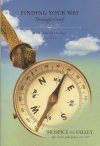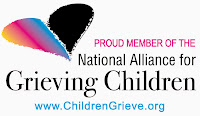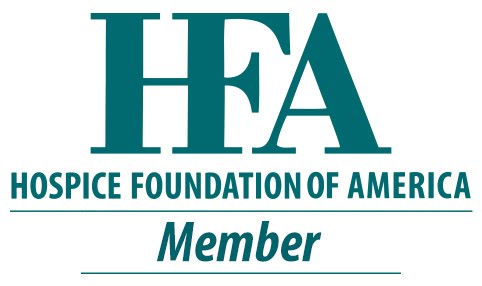 |
| Source |
It never rains but it pours. ~ Old English Proverb
A reader writes: I don’t know where or how to start. I lost a beloved dog a month ago. My other dog is critically ill. I lost a very good friend earlier this year. I am also feeling enormous grief and guilt over the loss of another dog who was killed by a car.
I am an RN so maybe you can relate a little. I was in critical care for many years and then worked in oncology and hospice. Most of my patients either died suddenly or suffered and eventually died. My involvement with significant others and family members was extensive. I attended many deaths in the course of my career.
Some of my patients accepted their impending deaths as the “healing of a lifetime.” Others did not and their deaths were much more horrible. I had a “breakdown” at one point, shortly after my dog was hit by a car and killed, and following a week when seven of my patients died. I have not worked as an RN for ten years.
I am feeling completely overwhelmed right now. I am having a great deal of trouble leaving my house. There is a pet loss grief group here in my town that I have not been able to get myself to. I am not functioning and my therapist and psychiatrist are not being helpful. It is especially hard at night when there is no one to talk to. My two best friends say they cannot deal with me right now. I am staying up all night but still arising early in the morning. I feel like I’m going crazy. I don’t understand why these friends would abandon me now.
I can’t be still, which is very unusual for me, so I just keep obsessively cleaning and organizing all day and all night. Medications are not helpful at this time. I have had only one significant human loss which was my Grandmother when I was only 7 years old. I don’t feel like I’ve ever dealt with her loss because I was completely excluded from everything concerning her death. She was the most important person to me.
I have no children, only many pets here and in the past. It’s too hard in the middle of the night when there is no one to call. I expect myself to be dealing with this because that is what I did professionally but it’s so different when it’s really personal. My pets are my family. It feels like no-one understands the extreme extent to which this is affecting me . . . It feels like everyone is expecting me to “buck up” and I just can’t.
My response: I’m so sorry to learn of the multiple deaths you’ve endured, both recently and in the past, and I know that, despite your very high expectations of yourself and despite all your professional training, education and background, right now you are experiencing the very raw and powerful feelings of loss. Grief is like that — it can knock you flat and leave you feeling crazy, isolated and vulnerable. I hope it will help to know that it is not you, but rather the situation ~ the circumstances that you find yourself in ~ that creates these feelings of helplessness, anxiety and hopelessness. Let me see if I can offer you some information, comfort and support.
First, I am reminded of something I read in a beautiful book by Nina Bennett, herself a healthcare professional whose granddaughter was stillborn. On page 55, Nina shares the comforting words she received in an e-mail message from one of her dearest friends, a hospice social worker:
Just remember that although you’re strong, you are also human. And just because you’re strong, it doesn’t give you supernatural powers to avoid very real, very human feelings. You are allowed to feel this way. It doesn’t mean that you are weak. It means that you are feeling the feelings of a grandmother who just suffered one of the most terrible things that a grandparent can go through. So allow yourself to be okay with feeling this way. Because these feelings are tough enough, without beating yourself up on top of it. — Nina Bennett, in Forgotten Tears: A Grandmother’s Journey through Grief
So often we healthcare professionals (and most especially, we nurses!) believe that we “should” know what to do in every crisis or emergency situation, not only for our clients and patients but for ourselves as well. We hold such unrealistically high expectations of ourselves, don’t we?
It strikes me that you’ve experienced not only a series of traumatic losses for which your grief may still be unaddressed and unresolved, but also a career filled with the vicarious trauma of working in critical care, oncology and hospice the cumulative effects of which can be extremely painful and overwhelming. In addition, you may be carrying some unresolved grief at the death of your grandmother when you were quite young.
The reactions you describe (feeling completely overwhelmed, unable to follow instructions, fearful of leaving your house, unable to sleep at night, feeling isolated and abandoned by your friends, feeling as if you’re “going crazy,” etc.) are not unlike what would be seen in Post-Traumatic Stress Disorder (PTSD).
You say that although you are seeing a therapist and a psychiatrist, they’re not being particularly helpful, medications aren’t working, and you’re not functioning well. I’m wondering if the cumulative effects of all the traumatic events that have taken place in your life these last few years are being underestimated. As a grief counselor, I can tell you that, before you can begin to do any effective grief work, it is very important that these issues be addressed first.
You might consider asking for a referral to someone who specializes in PTSD, where treatment includes simple tools (relaxation, breath work, meditation and guided imagery) to help you master and calm the troublesome symptoms you are experiencing now. At the very least, I strongly encourage you to do some reading about PTSD so you will be better informed about it. There are some wonderful and informative resources on the Internet (listed on the Traumatic Loss page of my Grief Healing website) but I also want to recommend an outstanding book that I think you will find quite helpful: Invisible Heroes: Survivors of Trauma and How They Heal, by Belleruth Naparstek, a psychotherapist and noted expert in PTSD. If you click on the title, you’ll go to Amazon’s description and reviews of the book. I cannot recommend this book highly enough, because it explains PTSD so thoroughly and it also contains some very simple, practical tools that you can begin using right now.
I hope this information proves useful to you, my dear. There is a world of help just waiting for you to find it. Please don’t give up on yourself. You are not alone. I am thinking of you and wishing you all the best.
Your feedback is welcome! Please feel free to leave a comment or a question, or share a tip, a related article or a resource of your own in the Comments section below.
If you’d like Grief Healing Blog updates delivered right to your inbox, you’re cordially invited to subscribe to our weekly Grief Healing Newsletter. Sign up here.
If you’d like Grief Healing Blog updates delivered right to your inbox, you’re cordially invited to subscribe to our weekly Grief Healing Newsletter. Sign up here.
Related Articles:
- A Therapist Experiences Heavy Losses
- Anxiety Attacks in Grief: Tools for Coping
- Bereavement: Doing The Work of Grief
- Chaos, Caregiving, And The Limitations of Grief
- Coping with Cumulative Losses
- Four Types of Grief Nobody Told You About
- Not Just a Military Problem: Four Signs You May Have Posttraumatic Stress Disorder
- One Of Our Own
- Pet Loss: Is It A Different Kind of Grief?
- The High Cost of Caring
- What You May Not See When You Look At Your Nurse

























No comments:
Post a Comment
Your comments are welcome!